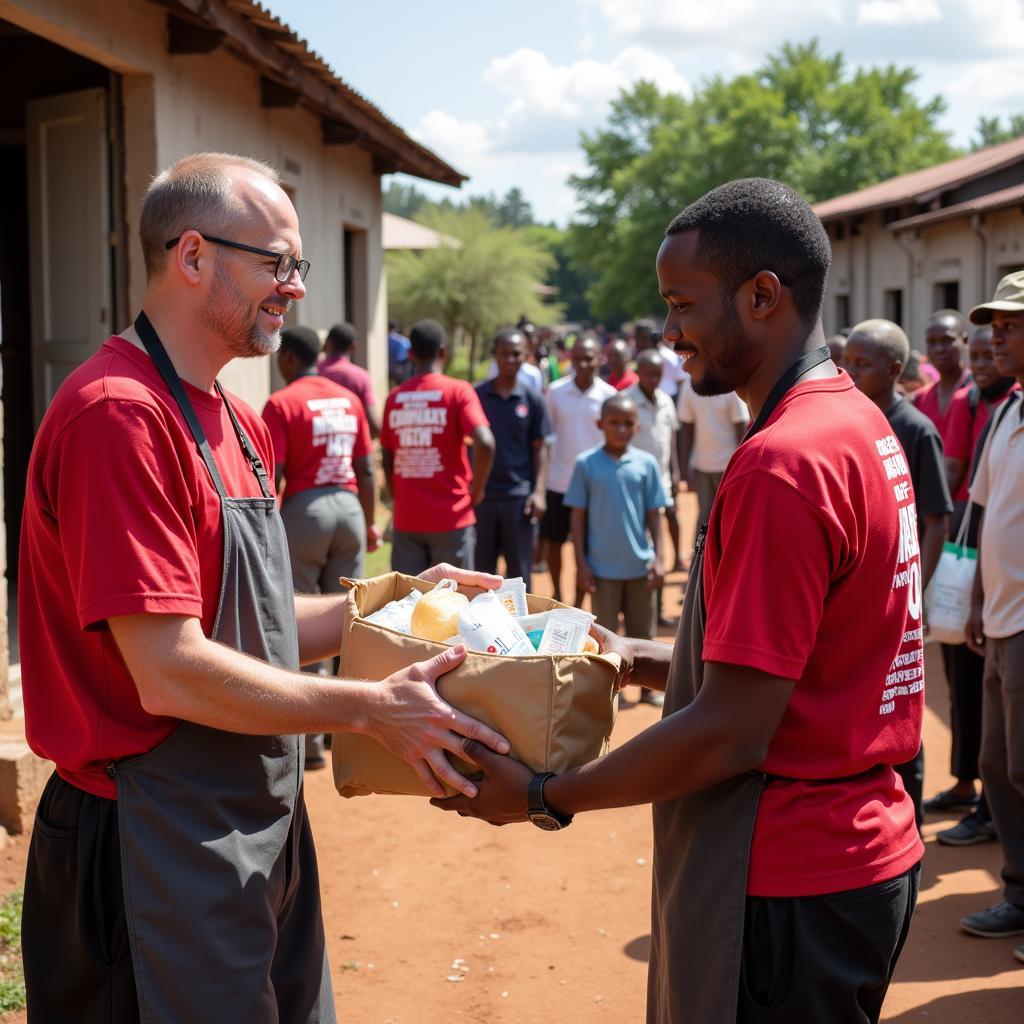Pontifical Mission Societies News keeps us informed about the vital work of spreading the Gospel and supporting the Church in mission territories. This article explores the significance of staying updated with these news updates, highlighting the impact of the PMS on communities worldwide and how it fosters peace and positive action.
The Importance of Following Pontifical Mission Societies News
Keeping up-to-date with Pontifical Mission Societies news is crucial for understanding the Catholic Church’s global mission and its dedication to aiding those in need. These updates offer insights into the challenges and triumphs faced by missionaries and the communities they serve, painting a vivid picture of the Church’s efforts in promoting peace and development. By staying informed, we gain a deeper appreciation for the interconnectedness of the global Church and the importance of supporting its mission.
Following these news stories allows individuals to connect with the human side of the Church’s missionary work. We learn about real people whose lives are being transformed, and we are inspired by their resilience and faith. This connection fosters a sense of global solidarity and encourages us to participate actively in building a more just and peaceful world.
 Pontifical Mission Societies Supporting Communities
Pontifical Mission Societies Supporting Communities
The Impact of PMS on Global Communities
The Pontifical Mission Societies play a vital role in supporting the Church’s mission in over 1,100 dioceses across Africa, Asia, Oceania, and the Amazon. Their work focuses on providing essential resources for evangelization, education, healthcare, and community development. From building schools and hospitals to training local clergy and catechists, the PMS empowers communities to grow and thrive.
The PMS’s focus on education is particularly impactful, as it equips individuals with the knowledge and skills necessary to become agents of change within their communities. By investing in education, the PMS contributes to long-term sustainable development and empowers future generations.
How PMS Fosters Peace and Positive Action
The Pontifical Mission Societies actively contribute to building peace and promoting positive action through their various initiatives. By fostering interfaith dialogue, supporting peacebuilding projects, and empowering local communities, the PMS creates an environment where peace can flourish.
Their work in conflict zones is particularly noteworthy, as they strive to provide aid and comfort to those affected by violence and displacement. By offering humanitarian assistance and promoting reconciliation, the PMS plays a crucial role in healing wounds and building bridges between communities.
What is the primary focus of the Pontifical Mission Societies?
The primary focus of the Pontifical Mission Societies is to support the Church’s mission in spreading the Gospel and providing aid to those in need in mission territories worldwide.
Conclusion: Staying Connected with Pontifical Mission Societies News
Staying connected with Pontifical Mission Societies news is essential for anyone who wants to be informed about the Church’s global mission and its impact on communities worldwide. These updates provide valuable insights into the ongoing work of the PMS and inspire us to support their efforts in promoting peace and positive action. By remaining engaged and informed, we can all play a role in building a more just and peaceful world.
FAQ
- What are the Pontifical Mission Societies?
- How can I support the Pontifical Mission Societies?
- Where do the Pontifical Mission Societies operate?
- What is the role of the PMS in fostering peace?
- How does the PMS contribute to community development?
- How can I stay up to date with Pontifical Mission Societies news?
- What is the significance of following PMS news updates?
Need further support?
Contact Phone Number: 02043854663, Email: [email protected] Or visit address: Khu 34, Bắc Giang, 260000, Vietnam. We have a 24/7 customer support team.
More information can be found on our website. Please see the following suggested articles: [Link to related article 1], [Link to related article 2], [Link to related article 3].